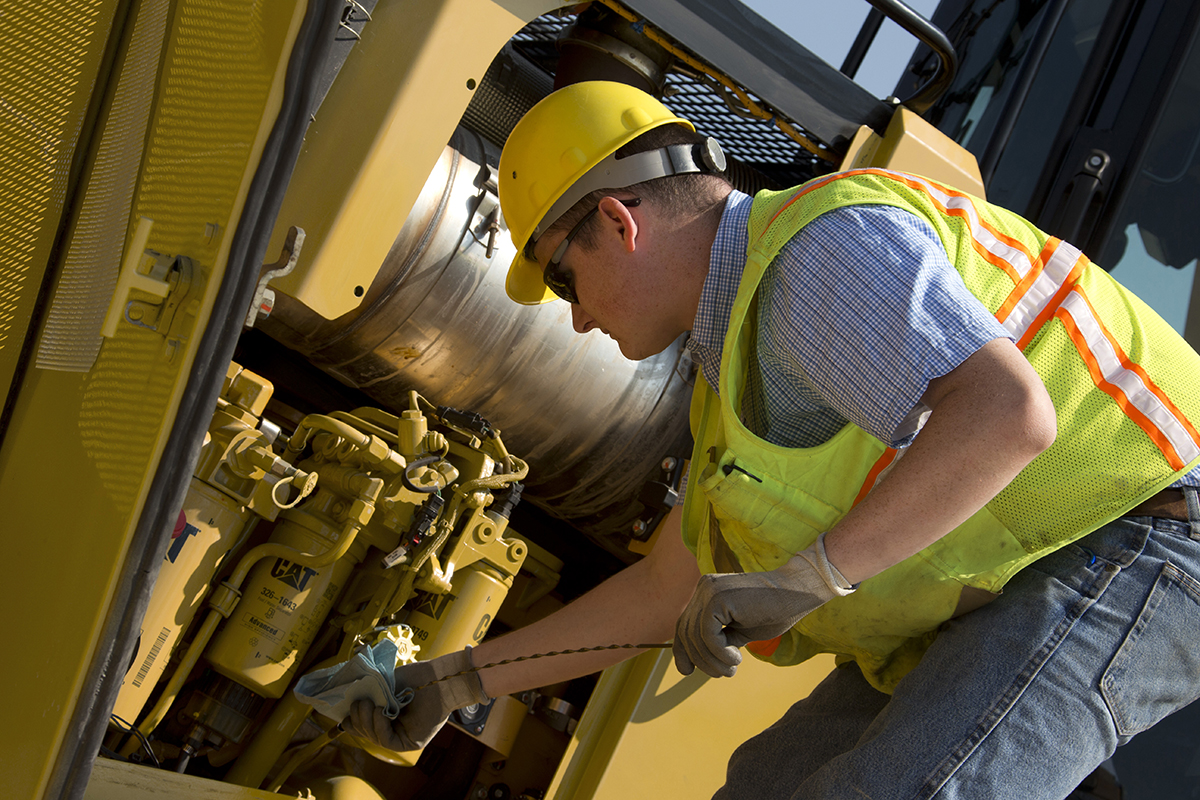Before it gets too cold outside, install the correct engine, hydraulic, transmission and final drive lubricants for your exact machine and the temperature range it will be working in.


Louisiana’s winters may not be as harsh as other parts of the Country, but if you plan to work through colder or freezing temperatures this winter, make sure that when you’re ready to use a machine…it’s ready to go. Failing to follow recommended winter maintenance can result in damaged components and unexpected repair bills. Check out these tips for cold weather operation to make sure you’ve got your fleet covered.
Before it gets too cold outside, install the correct engine, hydraulic, transmission and final drive lubricants for your exact machine and the temperature range it will be working in.
The outer wrapper of hydraulic hoses can become stiff and crack in colder temperatures. For best results, apply an artic hydraulic oil for colder months, and normal machine use will condition the hydraulic hoses.
In exceptionally cold weather, a block heater is the simplest way to fire up your engine in cold weather as it increases the temperatures of the engine and hydraulic fluid. To help speed up the warm-up process, block the radiator to restrict cold air from the fan.
Cold weather requires your batteries to generate nearly twice as many cranking amps in order to turn over, so keep yours charged and warm for easy starting. If you are working in sub-zero temperatures, storing the battery indoors at room temperature when it’s not in use can also help. Consider replacing batteries that are old or showing signs of low voltage.
If you use starting fluid, keep it at room temperature and inject it only while the engine is cranking.
Help prevent the intake and exhaust valves from sticking by running your engine until it reaches operating temperature before you begin each day’s work.
Check your tires at the beginning of every shift to make sure they’re filled to the proper sounds per square inch for your machine. Inflating your machine’s tires in a heated area will help the tire bead seat better.
Inspect the undercarriage to help ensure that all components are well lubricated and in good working order to reduce cold weather stress on components and joints.
It is unlikely that we will experience temps below 12° Fahrenheit or lower where DEF will freeze, but make sure the area you choose to store it in is well-insulated.
Avoid a frozen fuel tank or excessive fuel line condensation by filling up at the end of each day. Always keep the fuel storage tank clean of water, debris and sediment by draining the water from the water separator on a daily basis before refilling the tank.